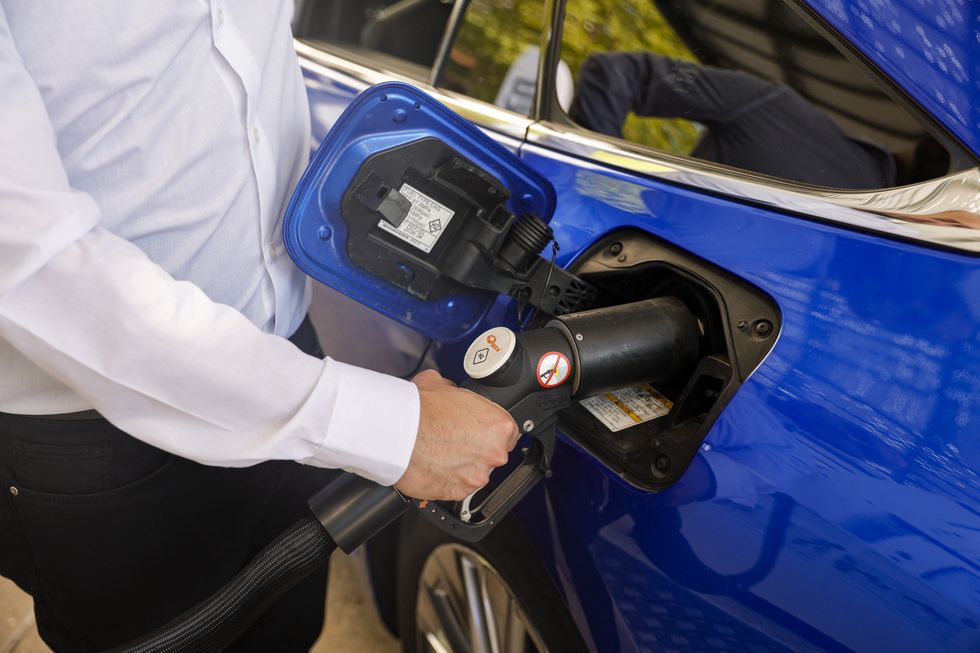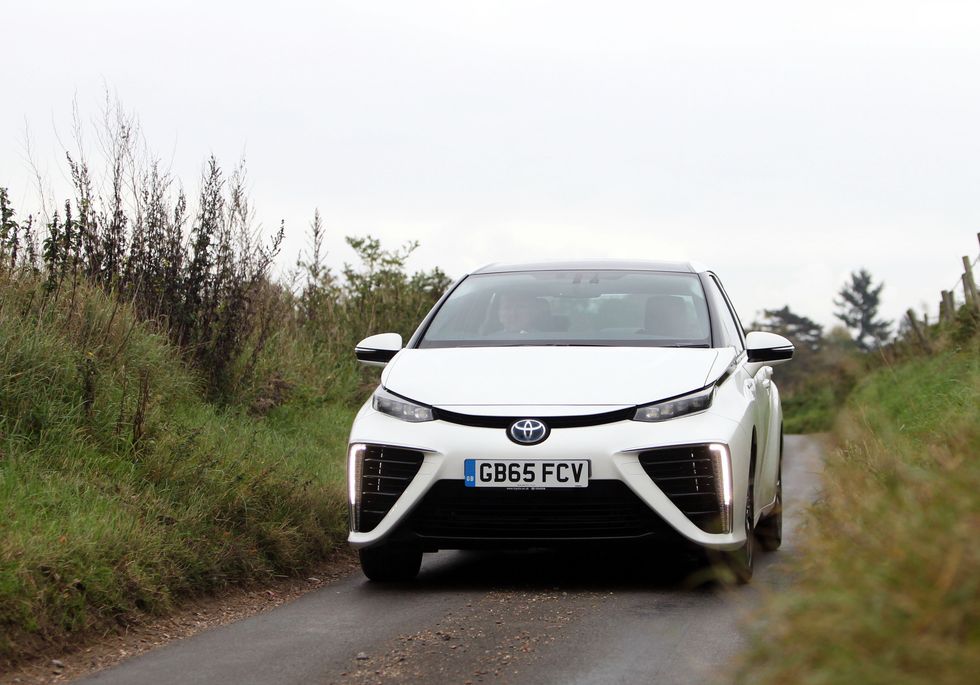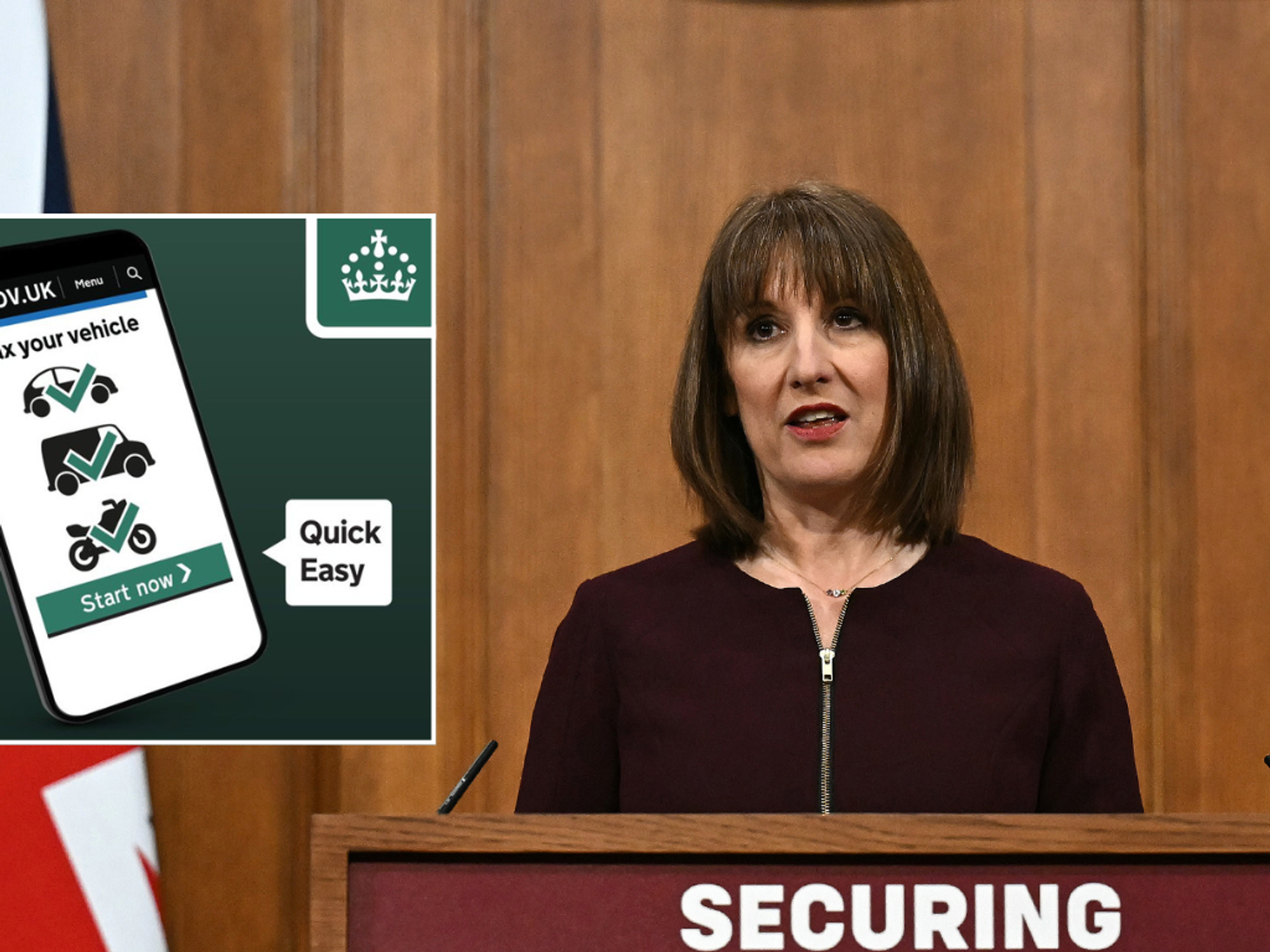'Hydrogen is a potential zero emissions alternative with real promise'
Don't Miss
Most Read
Trending on GB News
Experts have called on the Government to deliver a “more effective” hydrogen strategy to help drivers and businesses adopt the new fuel cell technology.
With a general election approaching, many people have highlighted the need for a clear pathway to introduce hydrogen across the transport sector.
A number of hydrogen vehicles are already seen on roads across the country, although hurdles stand in the way of mass integration of the fuel type.
There are just a handful of hydrogen refuelling stations across the UK available for drivers and fleet operators to use.

There have been calls for the number of hydrogen refuelling stations to increase
GETTY
Peter Golding, managing director of FleetCheck, said there was a “huge potential” for hydrogen to act as a key factor in the future of zero emission vehicles.
He added that more needed to be done by the Government to support uptake and promote the fuel as a serious alternative.
The Government published the latest update to the UK Hydrogen Strategy in December 2023, outlining how there are eight publicly accessible refuelling stations, with a further four planned.
It is estimated that there are around 265 hydrogen-powered vehicles on the road, made up of buses, HGVs, vans and cars.
Two initiatives, that have been backed by around £290million of funding, have supported three new refuelling stations, upgraded two existing stations and supported the use of 182 new vehicles.
Despite this, Peter Golding said: “The hydrogen refuelling infrastructure that exists across the UK, for example, is almost non-existent.
“There are plans to build 40 or so stations in support of truck and bus operators but the whole approach is very much based on larger commercial vehicles and buses.
“This is an issue because many van fleets are discovering very real limits to electrification when it comes to range and payload, and hydrogen is a potential zero emissions alternative with real promise.”
He highlighted how options for many to buy a hydrogen fuel cell vehicle were limited, either to an EV with somewhat limited range or a Vauxhall Vivaro hydrogen van.
There have been suggestions that the Vivaro could be as competitively priced as electric vans in the future, but the lack of infrastructure is expected to put the majority of drivers off from investing.
Peter Golding added: “This appears to be a practical zero emissions solution for van fleets but it is very much a vehicle in search of an infrastructure. Unless you are willing and capable of putting your own hydrogen depot refuelling in place, it’s very difficult [or] impossible to adopt.
“Any future Government should be pressured by fleets to provide infrastructure for these vehicles, while ensuring that the price of hydrogen is competitive with other fuel sources.
“In truth, the refuelling network doesn’t need to be huge in the first instance, but it needs to be reliable and in the right places, such as motorway services.”
He said a scheme to install around 200 hydrogen stations over the next few years would make an “enormous difference” to motorists looking into the viability of buying a hydrogen vehicle.
LATEST DEVELOPMENTS:

The Toyota Mirai was the first mass-produced hydrogen car
PA
The Government has confirmed that the zero emission HGV and coach infrastructure strategy will be published at some point this year.
It will include use-cases for both battery electric and hydrogen fuel cell technologies and will be informed by the responses from a call for evidence launched last year.









